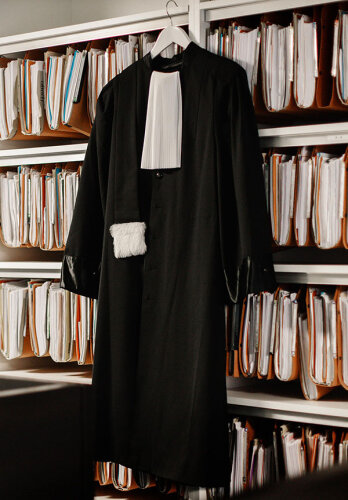Best Energy Regulatory Law Lawyers in Belgium
Share your needs with us, get contacted by law firms.
Free. Takes 2 min.
Or refine your search by selecting a city:
List of the best lawyers in Belgium
About Energy Regulatory Law in Belgium
Energy Regulatory Law in Belgium covers the set of legal rules and frameworks governing the production, distribution, and consumption of energy. This includes legislation at both the federal and regional levels addressing electricity, natural gas, renewable energy, energy efficiency, and market regulation. Due to Belgium’s federal structure, both national authorities and regional governments (Flanders, Wallonia, and Brussels-Capital) play key roles. The legal environment is also shaped by European Union directives, aiming to promote a secure, competitive, and sustainable energy system.
Why You May Need a Lawyer
Legal guidance is often essential in matters of Energy Regulatory Law due to the complexity and constant evolution of the rules. Common scenarios where individuals and businesses in Belgium may require legal advice include:
- Entering or exiting an energy supply agreement
- Complying with licensing and permitting requirements for energy production or distribution
- Understanding renewable energy incentives and obligations
- Handling disputes with energy regulators, suppliers, or network operators
- Navigating grid connection issues for renewable installations
- Investing in energy infrastructure projects
- Environmental compliance relating to energy operations
- Aligning with energy efficiency policies and requirements
In these cases, a lawyer specialized in the field can provide advice, represent you in regulatory proceedings, and help you avoid costly legal mistakes.
Local Laws Overview
Belgium’s energy sector is regulated at multiple governmental levels, reflecting the country’s federal structure:
- Federal Level: Governs nuclear power, natural gas transmission, and major electricity grids. The federal regulator, CREG, oversees these sectors.
- Regional Level: Regions manage distribution, renewable energy promotion, energy efficiency measures, and permits. Each region has its own regulator: VREG (Flanders), CWaPE (Wallonia), and Brugel (Brussels).
- EU Regulations: European energy directives are transposed into Belgian law, impacting market liberalization, consumer rights, and climate targets.
Key legal aspects include the requirement for licenses to produce and supply electricity or gas, technical standards for safety, financial incentives and certificates for renewables, and consumer protection in the liberalized energy market.
Frequently Asked Questions
What is the role of energy regulators in Belgium?
Energy regulators oversee compliance, ensure fair competition, set tariffs, and protect consumers at both the federal and regional levels. CREG operates federally, while VREG, CWaPE, and Brugel cover the regions.
Do I need a permit or license to produce renewable energy?
Yes, producing renewable energy typically requires permits from the regional authority, as well as compliance with grid connection and safety regulations.
How are energy prices regulated in Belgium?
Federal and regional regulators approve network tariffs, but energy suppliers set prices in the liberalized retail market. Consumers can choose their energy supplier.
What are the main incentives for renewable energy?
Belgium offers green certificates, heat pump and solar PV support schemes, and tax incentives. These differ by region and technology.
Can I connect my solar panels to the grid?
Yes, but you must comply with technical and administrative requirements, obtain necessary permits, and sometimes pay grid connection fees. Regional distribution system operators manage these processes.
Who should I contact in case of an energy dispute?
You can contact your regional energy regulator or an ombudsman service. Legal advice is recommended for complex disputes, especially those involving contractual or regulatory issues.
Are there special rules for industrial energy users?
Yes, industrial consumers may face specific energy efficiency obligations, environmental permits, and tailored network tariffs. Legal consultation helps ensure compliance and optimal energy strategies.
What obligations do energy suppliers have towards their customers?
Suppliers must provide clear contracts, fair billing, transparent pricing, and adhere to consumer protection rules. Disputes can be taken to regulatory bodies or courts.
How does Belgium ensure energy security?
Laws focus on infrastructure maintenance, grid reliability, diversification of supply sources, and emergency response plans for supply disruptions.
How does EU law impact Belgium’s energy sector?
EU directives shape Belgium’s market liberalization, renewable targets, energy efficiency measures, and climate policies, requiring adaptation of Belgian law to meet European standards.
Additional Resources
If you are seeking more information or official assistance, the following resources are highly valuable:
- CREG - Federal Commission for Electricity and Gas Regulation
- VREG - Flemish Energy Regulator (Vlaamse Regulator van de Elektriciteits- en Gasmarkt)
- CWaPE - Walloon Energy Commission (Commission Wallonne pour l'Energie)
- Brugel - Brussels Energy Regulator
- Federal Public Service Economy (FOD Economie/SPF Economie)
- Belgian Renewable Energy Federation (ODE/VREG and equivalents per region)
- Consumer Ombudsman Service for Energy
- European Commission - Directorate-General for Energy
These organizations provide guidance, official documents, and help resolve inquiries or disputes related to energy regulation.
Next Steps
If you require legal assistance in Energy Regulatory Law in Belgium, consider the following course of action:
- Clarify your specific legal question or issue
- Gather relevant documents such as contracts, correspondence with regulators, and any permits or licenses
- Contact a qualified energy lawyer or law firm with expertise in the sector
- Book an initial consultation to outline your situation and receive guidance on possible solutions
- Consult regional regulators or ombudsman services for additional support and, where possible, seek mediation for disputes
- Stay informed about changes in both Belgian and EU energy regulations that may affect your case
Taking these steps can help you navigate the complex regulatory environment, protect your rights, and achieve the best possible outcome in energy-related matters.
Lawzana helps you find the best lawyers and law firms in Belgium through a curated and pre-screened list of qualified legal professionals. Our platform offers rankings and detailed profiles of attorneys and law firms, allowing you to compare based on practice areas, including Energy Regulatory Law, experience, and client feedback.
Each profile includes a description of the firm's areas of practice, client reviews, team members and partners, year of establishment, spoken languages, office locations, contact information, social media presence, and any published articles or resources. Most firms on our platform speak English and are experienced in both local and international legal matters.
Get a quote from top-rated law firms in Belgium — quickly, securely, and without unnecessary hassle.
Disclaimer:
The information provided on this page is for general informational purposes only and does not constitute legal advice. While we strive to ensure the accuracy and relevance of the content, legal information may change over time, and interpretations of the law can vary. You should always consult with a qualified legal professional for advice specific to your situation.
We disclaim all liability for actions taken or not taken based on the content of this page. If you believe any information is incorrect or outdated, please contact us, and we will review and update it where appropriate.
Browse energy regulatory law law firms by city in Belgium
Refine your search by selecting a city.















